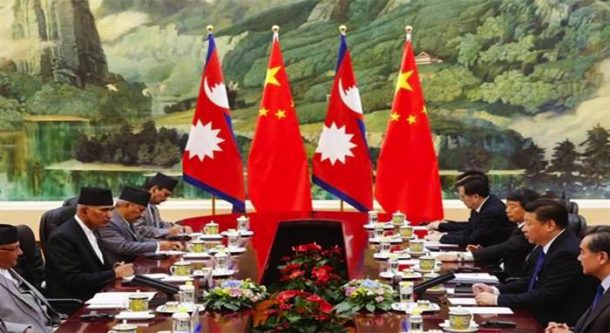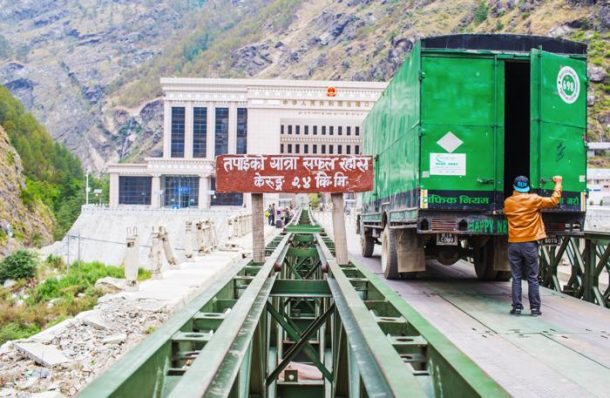
Traveling from Nepal to Tibet by Train
As fantastic and convenient as it would be to be able to travel directly from Kathmandu to Lhasa by train, as yet, there is no railway that links these two neighboring capitals. However, there soon will be. After the successful implementation of the Qinghai Tibet Railway, and the extension line from Lhasa to Shigatse, there are plans already in place to extend the line to Shigatse another 540 kilometers to the Sino-Nepal border at Gyirong Port. China Nepal railway project is the dream project for both Chinese and Nepali citizens.

Kathmandu, the capital of Nepal
This amazing railway will bring much-needed trade options to the Tibetan plateau, increase and improve tourism in the region, and extend China’s trade and commerce all the way to India, and possibly beyond. As a joint effort from the Chinese and Nepali governments, this awesome plateau railway will soon be a reality, and trips to Tibet will become even easier for travelers from around the world.
Table of Contents
China Nepal Railway Project
The China Nepal Railway Project is just one part of the vast One Belt, One Road Initiative from the Chinese government, as a way to improve and increase trade between China and many other countries, from Nepal and India on into the Middle East and into Southern and Eastern Europe. The Initiative takes on the ancient overland and maritime Silk Road routes, which are being re-used to improve infrastructures and developments across China and increase Chinese investments in Asia, Europe, the Middle East, and Africa.
What is the China Nepal Railway?
The China Nepal Railway is the proposed project that has been agreed between the governments of both countries to build a complete railway line that will link Kathmandu with China, via the border crossing at Gyirong Port, and opening up the whole of Nepal and China to better trade and tourism possibilities.

Nepal China Railway project has been agreed and it is under construction
Part of the route to Nepal has already be completed, with the building of the Lhasa-Shigatse line, and has been open since August 2016, covering two hundred and fifty-three kilometers of the distance to the border. This stunning line has become the main method of transport in the region for travelers from Lhasa to Shigatse, and vice versa, and making it easier and cheaper for travelers to get between the two cities.
Benefits of the Train to Nepal from China
Having a train line that connects Lhasa with Kathmandu directly has more benefits than many people realize. While there are those that say the railway is diluting the traditional Tibetan way of life, the benefits to the people and the region far outweigh the “potential” problems that some say will happen. Not only will this track bring in more trade and commerce from the Nepali side of the border, but it will allow a better link for trade from Tibet to Nepal, India, and the west, and will make it easier to export the highly sought-after Tibetan handicrafts to the western world, increasing the income of many Tibetan families.
Tourism is another benefit of the Sino-Nepal Railway, as it will make it simpler to get to Lhasa from Kathmandu, without having to take an expensive flight or travel overland on a tour. Many tourists entering Tibet by flight from Kathmandu do so because they want to take their tour in the traditional way, from Lhasa to Gyirong Port. Having a train will not only allow them to travel direct overland to Lhasa, without stopping but will allow for much cheaper travel than by flight. And if the cost of the journey to Lhasa from Kathmandu is cheaper, then it will become much more popular, and increase the numbers of tourists coming to Tibet.
The line will also link many of the outlying and remote areas of Tibet, which are currently only accessible by the long and arduous road trip across the plateau from Lhasa, which takes days and costs a lot in fuel and expenses. Goods can be transported to the outlying areas more easily and cheaply, and the whole system can help to drastically improve the way of life of the Tibetans in western Tibet, providing much-needed food and aid to help them survive the harsher winters.
Construction of the China Nepal Railway
The first railway to Tibet was completed in 2006, running from Xining in Qinghai Province to Lhasa, the Tibetan capital. This line, known as the Qinghai Tibet Railway, is now one of the main routes for travelers to the plateau, both international and domestic tourists as well as locals traveling to and from the plateau for work.
In the same year, it was announced that the line would be extended to Shigatse, and eventually on to the Nepali border, and in 2010, construction began, completing the section to Shigatse in 2013 and opening for regular use on August 16, 2014. In 2016, a new agreement was signed between Nepal and China, which included a planned strategy to build a high-speed railway link from Kathmandu to the border with China at Gyirong Port.

Nepal China Railway starts from the Kyirong in Tibet.
Currently, all of the planning stages of the railway to the border have been completed, and the construction of the railway is set to get underway within the coming year. Construction of this vast extension to the border is expected to take around three years, thanks to the new ideas and technology that the Chinese engineers have come up with during the building of the Qinghai Tibet Railway and the Lhasa-Shigatse Line. The line to Gyirong Port will extend another 540 kilometers from Shigatse, and the tracks to Kathmandu will cover just 72 kilometers, taking a more direct route than the roads.
Extensions of the railway into India
Currently, the Nepali government is also in talks with the Indian Railways to extend the China Nepal Railway into India, linking to the vast network of tracks that crisscross the country. This would mean a direct link from China to India, and on into the Middle East and Europe, making it the first overland railway from China and the rest of Asia to the Middle East, and northeast Africa.
India has also made an agreement to fund and build a railway network in Nepal, which will link more of the districts of this Himalayan country to Kathmandu, including the areas of Chitwan and Lumbini, Pokhara, and the area of the Sagarmatha National Park. There will also be a railway link from the main border crossing at Nepalgunj, where the trains already cross from the Indian town of Raxaul to Kathmandu, via Pokhara.
Recent Posts
Top Festivals in Tibet During Summer
Discover Tibet in 2024
Traveling to Tibet Alone
All Categories
- About Tibet
- book a Tibet tour
- Buddhism Practice
- Budget Tour
- China-Tibet Train
- Customized Tibet tour
- Historical Sites
- Hot Springs in Tibet
- News
- Photography in Tibet
- Tibet attraction
- Tibet Group Visa
- Tibet Motorcycle Tour
- Tibet Small Group Tours
- Tibet Tours and Tibetan Tour Guide
- Tibet Train
- Tibet Travel FAQs
- Tibet Travel Information
- Tibet Travel News
- Tibet Travel Permit Update
- Tibet Travel Prices Rises
- Tibet Trek
- Tibet Trekking Tour
- Tibet weather and climate
- Tibet Wildlife animals
- Tibet Winter Tour
- Tibetan Buddhism
- Tibetan Cultural Features
- Tibetan Culture and Poeple
- Tibetan Festivals
- What to see in Tibet




